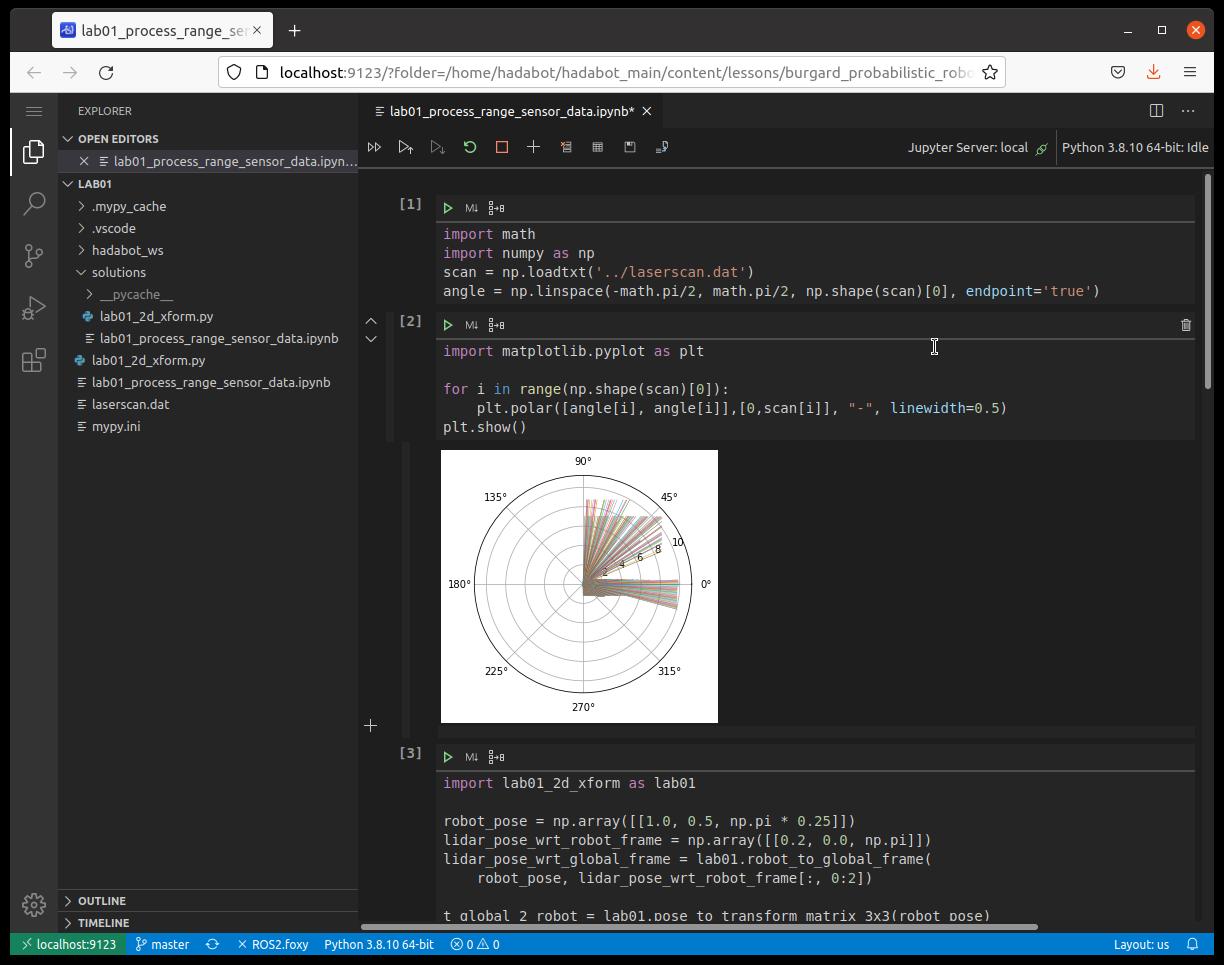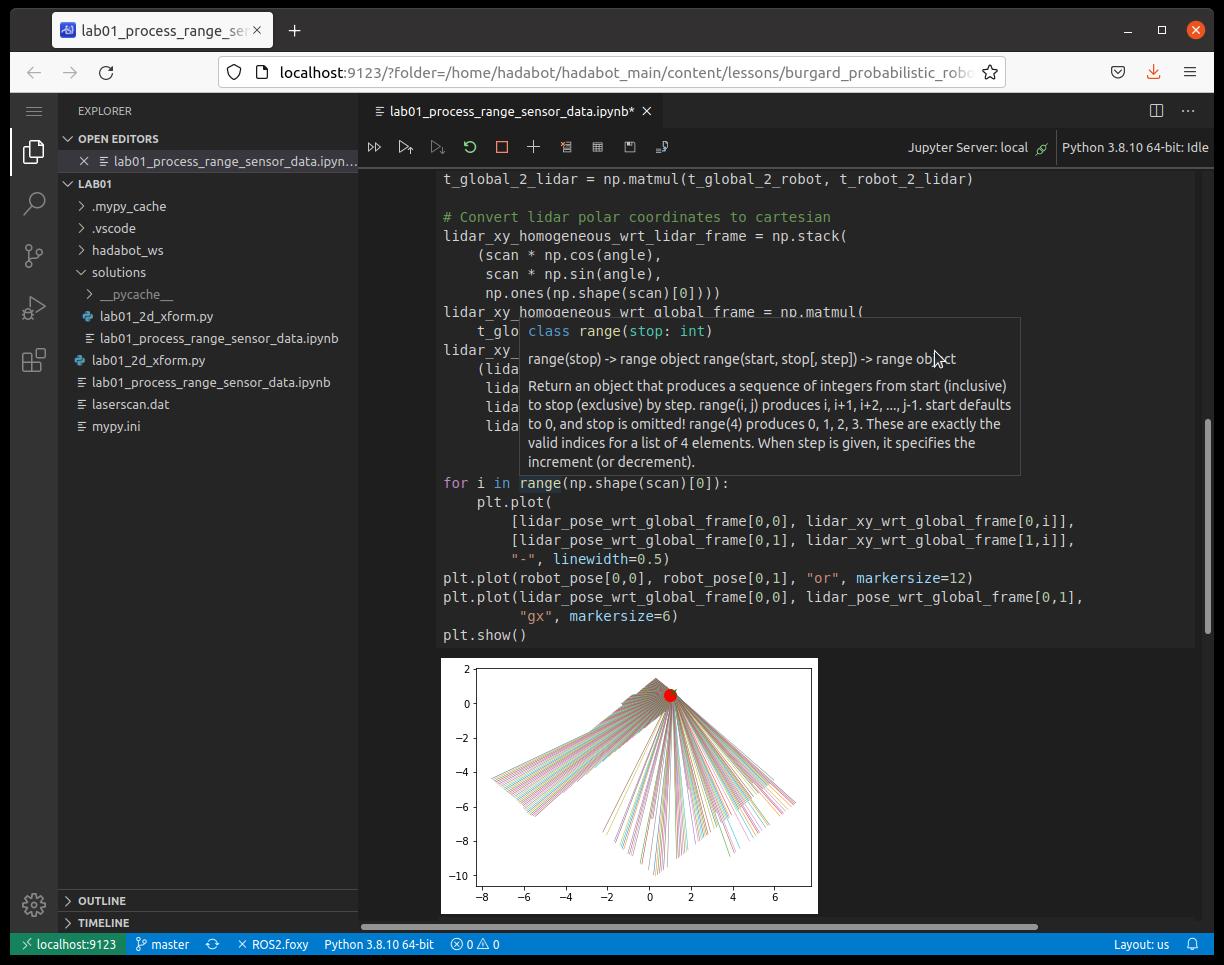Hadabot is a low-cost robot kit for students, software engineers, makers to learn ROS 2 and robotics in a hands-on manner. Our robot kits are (somewhat) easy to build, extensible, and customizable. The Hadabot software stack consists of an open source web browser-based coding environment to make the hacking experience frustration-free.
Come interactively learn basic ROS 2 concepts for FREE, no Hadabot kit purchase needed!!
Probabilistic Robotics
Every roboticist has come across the seminal textbook Probabilistic Robotics by Sebastian Thrun (arguably the father of self-driving cars), Wolfram Burgard, and Dieter Fox.
Probabilstic Robotics describes the techniques fundamental to present-day self-driving car localization - its novelty lies with describing robot state in a stochastic / probabilistic manner, rather than a hard-lined definitive manner.
What does that mean? Instead of deterministically saying that my robot is at a specific location in the world or has opened the door, you express your belief that your robot may be at number of different locations. You express your belief that the robot may have successfully opened the door.
Your belief is sharpened with additional sensor readings, or dulled with movement or other actions that can introduce uncertainty. Over time, you may strengthen your belief of the robot state, but you will never be for certain. By allowing for uncertainty, a probabilistic approach becomes robust to a robots complex environment (ie traffic, people, slipping on the carpet) and errors that arise from faulty sensor readings and/or actuator failures.
Hadabot Lab Exercises for Probabilistic Robotics
In case you didn't know Dr. Wolfram Burgard has a MOOC on Probabilistic Robotics. Similar to my other efforts to convert lab exercises of select robotics MOOCs to use ROS 2, Python, Jupyter Notebooks, I have started to do so for the lab exercises from Dr. Burgard's MOOC.
While following along Dr. Burgard's syllabus, you can hop on to the Hadabot website to interactively implement and work through the various Probabilistic Robotics lab exercises using a Hadabot "Turtle" robot and our Hadabot software learning environment, using ROS 2 and Python.
Most exercises don't require a Hadabot robot kit, so feel free to dive in even if you are not ready to purchase a kit. The entire lab suite is a work-in-progress as I continue to add labs and refine olds ones. My goal is to make it easier for students to learn ROS 2 robotics in a hands-on manner.
Bonus Material !!
Additionally, Dr Carlotta Berry, professor of computer engineering at Rose-Hulman Institute of Technology is currently releasing MOOC lessons that parallel Burgard's syllabus.
Dr. Berry uses these online lessons to teach an Advanced Mobile Robotics for Autonomous Vehicles course in a flipped classroom manner at Rose-Hulman.
I actively work with Dr Berry to ensure that the labs and exercises I publish are consistent and relevant with her Advanced Robotics class.
So in addition to Burgards videos and slides, you can also refer to Dr Berry's MOOC videos on the same probabilistic robotics concepts for added clarification, to hear complex concepts explained slightly differently.
By watching Dr Berry's MOOC lessons and working on these Probabilistic Robotics Hadabot labs / exercises, you effectively can get the same flipped-classroom experience.
As mentioned in the past, this is an ongoing effort. In addition to what's been published on the Hadabot website, I plan to "Hadabot-ify" many other online robotics courses in the future.
Love to hear your thoughts on this effort. And if you are a professor interested in adding ROS 2 to your curriculum (I create the content for you!), or a student actively learning robotics, please don't hesitate to reach out with questions, guidance, and/or suggestions.
Thanks and happy building / learning!
Jack "the Hadabot Maker"

